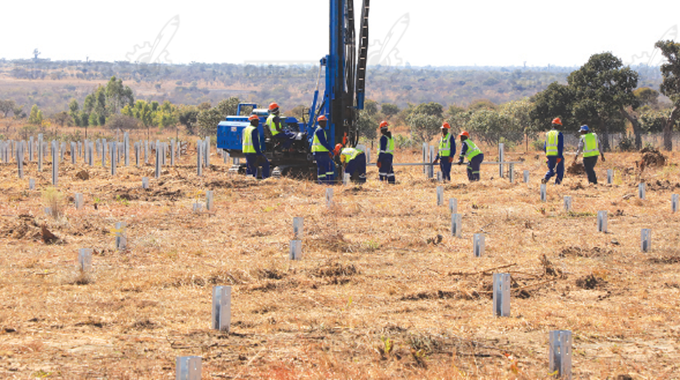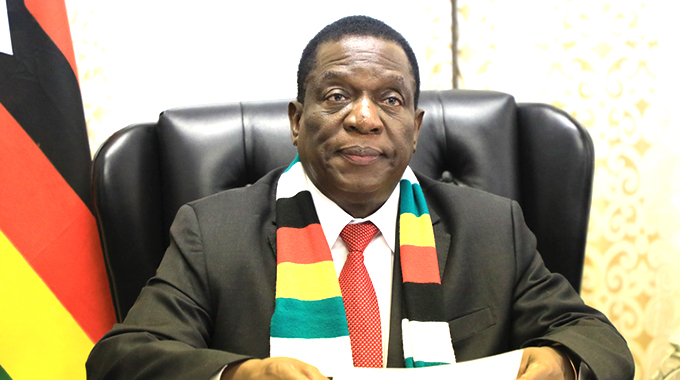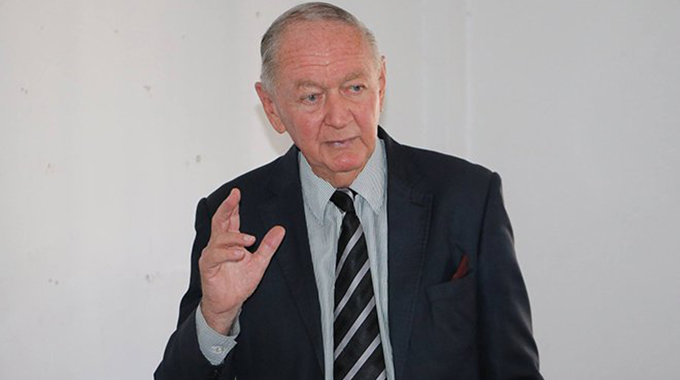National project status for Harava Solar venture

Africa Moyo Deputy News Editor
Government has granted national project status to the 20MW solar farm being constructed in Bwoni Village, Seke rural, at a cost of almost US$25 million by Harava Solar.
Projects awarded national project status get preferential treatment, which includes exemption from paying import duty and other taxes.
The granting of national project status is expected to speed up the implementation of the key project which comes at a critical moment when the country is contending with long hours of load shedding due to low water levels in Kariba Dam and obsolete equipment at thermal power stations.
Harava Solar co-founder and chief executive officer Mr Ainos Ngadya confirmed the granting of the national project status to The Herald during a tour of the solar park on Monday.
“The project was awarded national project status by Government, so as most of the components come through Zimra (the Zimbabwe Revenue Authority), they don’t pay tax,” said Mr Ngadya.
The project entails the building of a 20MW solar farm, with all the power earmarked to be fed into the national grid through the Dema 330kV substation.
A 132kv transmission line spanning 10km from the solar park to Dema Substation is in the process of being set up.
The pylons used in power line construction are already on site and were supplied by Chinese firm, Taikai Power Engineering, one of the biggest players in that space.
Taikai Power generates US$30 billion revenue per year and has done 400km transmission lines in the SADC region.
Mr Ngadya said the 20MW is enough to power almost 40 000 households.
“It involves 22 hectares of solar of panels, (which would be) 72 000 solar panels of 330W sizes. So we have a 25-year power purchase agreement with ZETDC (the Zimbabwe Electricity Transmission and Distribution Company) and we intend also to expand.
“We think construction is going to be completed by December this year, then we commission the 20MW plant and we immediately move in to expand by commissioning another 20MW next to this project, till probably we reach 100MW in Zimbabwe,” said Mr Ngadya.
Land for another 20MW solar farm is already there. Harava Solar converts light into electrical energy, so even when there are no clear skies, the company will still produce energy, albeit on a lower scale.
Mr Ngadya could not be drawn into divulging the tariff they negotiated with the Zimbabwe Energy Regulatory Authority (Zera) “because of privacy”, but said it was “almost close to the end user tariff model” and “a bit competitive”.
The solar panels to be used are supplied by Jinko Solar, the world’s biggest solar panel manufacturer, shipping 11,4 gigawatts of modules last year.
Jinko Solar, which is head-quartered in Shanghai, China; has been listed on the New York Stock Exchange since 2010 and generated revenue of US$3,64 billion last year.
A Germany company, Soventix Powerful Returns, is the installation contractor, which was selected from 15 other bidders that included Power China.
Harava Solar chief operating officer Engineer Brian Chindondondo said they wanted a company that has done over three solar parks of 20MW.
The winning company, Soventix, has done over 50 solar parks across the world. It has since sent a few technicians, with the rest of the work being done by local employees.
“We met the local leadership to get a database of skills possessed by locals, be it electricians, engineers, among others.
“So we turn to that database when vacancies arise. But where a position cannot be filled by a local person because of skills gaps, we can get from anywhere in the country,” said Eng Chindondo.
In line with ZESA regulations that dictate that a 132kv line should not pass through homesteads as it goes to Dema Substation, Harava has relocated 11 families and constructed decent houses for them.
The housing project gobbled over US$100 000.
More importantly, Harare has crafted an empowerment scheme called the Bwoni Village Community Share Ownership Trust, in which locals hold 7,3 percent.
Mr Ngadya said the Trust has a “very clear mandate” of constructing solar-powered 330W boreholes in the village, establish small irrigation schemes, and also light up local schools and clinics with solar power each time a dividend is declared to them. The Trust will provide scholarships to local students especially those studying engineering, and the underprivileged. The Bwoni Village, in collaboration with Chief Seke, are spearheading the project, while Harava Solar representatives are also Trust members to ensure there is no abuse of resources.










Comments